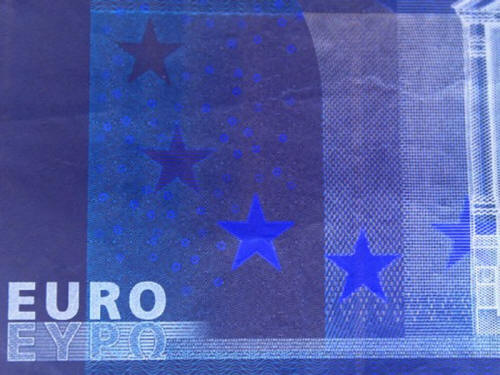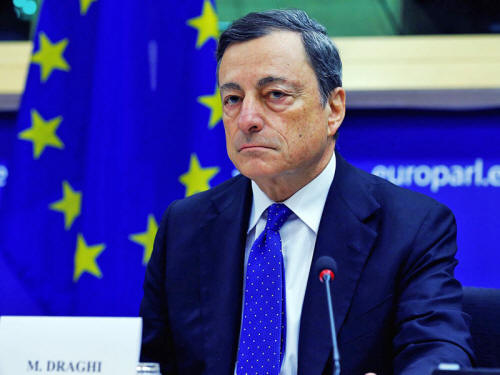|
from WolfStreet Website
has come to falling apart.
So at least hopes the
French political class, and by extension the European establishment.
Then the government can
just print the money it wants to spend...
And if she still wins, her government will face that bloc in parliament.
But hey... And now people are seriously thinking about it.
So the question of what
it would cost to leave the Euro is uncomfortably on everyone's mind
and lips - that's how far this has gone.
The ratings agencies, with their eyes on those Euro bonds, have already spoken up.
Moritz Kraemer, S&P's head of sovereign ratings, wrote in a letter published in the Economist on February 4 that Le Pen's plan of re-denominating French debt into new francs would constitute a sovereign default:
In other words, S&P doesn't believe that Le Pen will get that far, and so they have not yet slapped a "D" for default on French government debt.
Moody's too declared a few weeks ago that a re-denomination of French government bonds into new francs,
Bondholders don't like the idea of not getting "their" money - the Euro - back when the bond matures, and they despise watching the purchasing power of their principal get watered down, as such a plan would do.
They bought these bonds with ultra-low yields that had assumed that there wouldn't be any of these risks.
Hence the "Le Pen premium," a new term in the financial vernacular to describe the spiking yield spreads between German and French government bonds.
Now ECB President Mario Draghi is stumbling into the fray.
Which evoked memories of the good ol' days of the sovereign debt crisis, when, to put an end to it in July 2012, Draghi said that the Euro was "irreversible" and that the ECB was,
At the time, the Spanish 10-year yield was above 7% and the Italian 10-year yield was above 6%.
So now, same tune, different scenario. It's not a debt crisis. It's just a question of whether or not it's possible to leave the Euro, and if yes, how much it would cost.
And that question has already been raised officially.
On January 18, Draghi had sent a letter to European Union lawmakers Marco Valli and Marco Zanni, telling them:
That was the opening - the IF...
It meant that a country could leave!
It was the first official admission that this was actually possible. It was just a matter of cost. That's how Zani saw Draghi's response.
Alas, in his testimony before the European Parliament, Draghi refused to put a price tag on leaving the Euro.
Valli asked him whether the "liabilities" Draghi had referred to that would "need to be settled in full" were the so-called Target2 imbalances. These are a result of payment settlements within the European System of Central Banks.
They'd soared during the debt crisis to hundreds of billions of Euros, a sign of the underlying financial tensions between debtor and creditor countries.
But Draghi dodged the question:
Which was very helpful.
But even though he refused to put a price tag on leaving the Euro, the whole exchange confirmed that it's possible to leave the Euro, though there is nothing in the treaties that mentions leaving the Euro.
Other Eurozone central bankers are also trying to stem the tide, evoking soaring borrowing costs for France, if it chose to leave, and outright "impoverishment," as ECB Executive Board member Benoit Coeure put it.
Whatever the ultimate costs of leaving the Euro - they may be greatest for the holders of affected Euro debt - for the Eurozone's second- and third-largest economies, it has come down to just doing the math and making a decision.
That's the closest the Eurozone has ever come to falling apart.
Bonds are already falling, yields are rising, and NIRP is dying.
|




